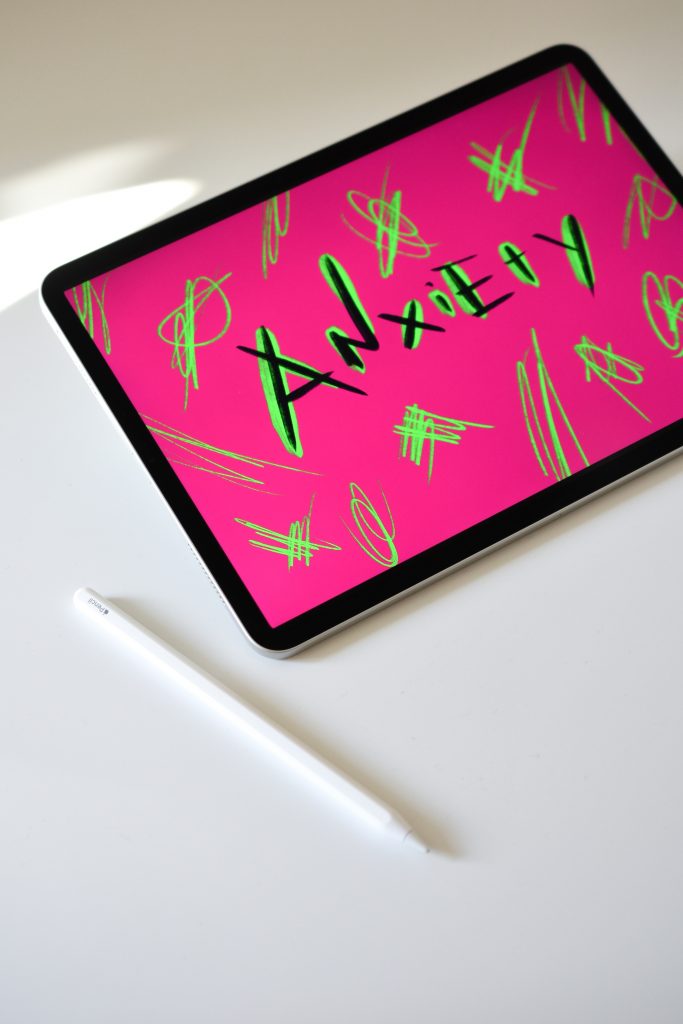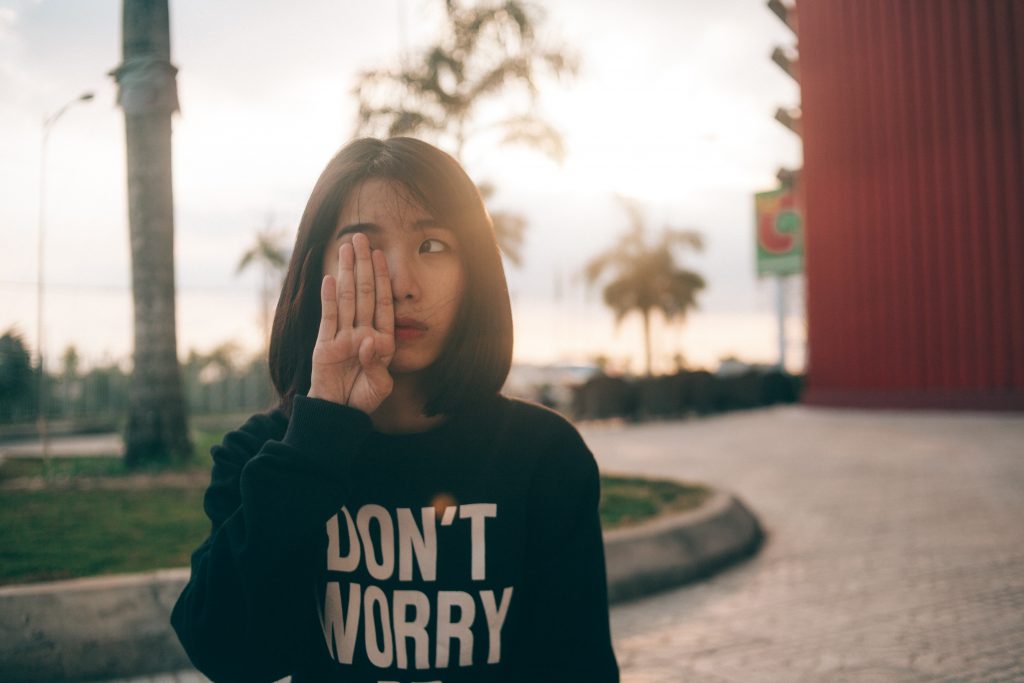Anxiety disorder seems to have become the acceptable or at least palatable face of mental illness. For many it is becoming easier to talk about a diagnosis of anxiety. As it should be. We are (finally) becoming a society where discrimination, in some cases, is lessening. But why is it particularly anxiety that is becoming more acceptable? Seemingly more than other diagnoses. Is it because when we say anxiety, we’re thinking of something we all experience?
My Anxieties Have Anxieties

People talk about being anxious or having anxieties all the time. In much the same way that we talk about being stressed. We often use the words interchangeably. They are both a part of the human experience that we can all lay claim to. Being anxious or feeling stressed is part of our mental health. We’re all likely to feel this way at times, some more than others.
Symptoms of anxiety are very similar, and often overlap with stress. They run the spectrum of physical, emotional, cognitive and behavioural. There’s also no one size fits all. How I look or feel when anxious will be different from you. Feeling better when we feel anxious is about anxiety management. In the same way we talk about stress management. (Click here for my thoughts on stress management)
For Why We Should Talk about Stress Management Not a Cure read here.
For How to Practise Deep Breathing for Stress and Anxiety read here.
Anxiety Disorder

Anxiety disorders are different from the anxiety that we all feel at times. This is something we need more clarity on, hence the reason I wrote this post. Whilst I don’t think it’s wrong when someone says they have ‘anxiety’ when they really mean stressed, we do need to be clear about meaning.
So, what’s the difference? Anxiety disorders have many of the hallmarks of anxiety but they are more severe, more frequent and can have an impact on daily functioning. There’s also not just one type of anxiety disorder. Anxiety disorders is an umbrella term for a variety of anxiety related diagnoses including (but not limited too): Generalised Anxiety Disorder (the most common anxiety disorder), Panic Disorder, Acute and Post Traumatic Stress Disorder, Phobias and OCD (Obsessive Compulsive Disorder).
There may be multiple reasons anxiety is more talked about than other conditions. Firstly, it’s the most prevalent diagnosis alongside depression according to the 2010 Global Burden of Disease Study. (This may not seem like a current piece of research, or recent statistic, but up to date research in mental health and mental ill health is infrequent and hard to come by). The other reason I believe holds currency is that anxiety is something everyone feels they can relate to. It’s more than likely that we’ve all been anxious at times. Or that we’ve experienced a normalized level of anxiety. This gives us a microcosmic insight to what an anxiety disorder may be like. Having said this, we haven’t all experienced an anxiety disorder. It may feel like I’m nit-picking but this is an important point.
For 4 Ways to Reframe Anxiety read here.
Honoring Experiences

For many who experience a variety of mental health problems, being told to ‘get over it’, to just try x or to have it minimized in numerous ways is extremely harmful. When we don’t differentiate between anxiety and anxiety disorders we feed into a culture where this happens. If everyone experiences anxiety, then our medically diagnosed anxiety becomes misunderstood and minimized. People begin trotting out the usual epithets without a real understanding about where we are coming from.
It also makes it harder to be honest with others about our mental health and a possible diagnosis. If everyone feels like they understand anxiety, do I want to be the one who has to educate why mine is different? Do I want the responsibility of having to outline the difference between anxiety we all feel at times and an anxiety disorder? It may seem like a small thing, but it’s a burden to carry.
Additionally, in a world where everyone talks about anxiety but actual understanding of anxiety disorders is low, do I feel like I can talk to people at all? Will they assume I’m making a big deal about something that ‘happens to everyone from time to time’? I have to weigh up the pro’s and con’s of telling people. If they brush me off, what impact may that have on my own recovery?
For more on What Recovery Means read here.
What are your thoughts on the way we use language around anxiety? Is it a problem? How can we educate about the difference and promote understanding?

This is a great article and I think the topic of anxiety goes hand in hand with the public discourse around depression. Everyone likes to use the word anxiety, but if it’s not purposeful in the medical sense, the word will lose its meaning and those with anxiety disorders can feel like the symptoms are diminished.
Agreed. A diagnosis can be helpful up to a point but if we start confusing definitions then we all get stuck in a grey area!
This is a much needed article in the conversations of mental health – whilst normalising anxiety disorders is helpful in allowing sufferers to feel more able to access help and support, it shouldn’t also reduce the impact anxiety disorders have on the individual by becoming synonymous with normal anxiety we all experience. Great post 🙂
Couldn’t agree more!
I like the idea of distinguishing from anxiety and anxiety disorders. Anxiety and nervousness can be totally normal, and it is easy for a clinically anxious person to feel their illness is diminished by flippant remarks from others. thanks for the reminder!
I think it’s part of a growing need to be more accurate in our language. It’s ok to normalize experiencing anxiety but refine our language so people know when to reach out for support
I really really agree with you. It bothers me that lately, the word anxiety became a sort of trendy like it’s a cool expression “all these tests are giving me anxiety” “I don’t know which color to choose, it’s giving me anxiety” (sentences I actually heard people saying) and so on. For me, it feels like it minimizes the seriousness of the anxiety disorder that impacts people in a serious way. Thank you for writing this post and being a voice for this.
I couldn’t agree more. It’s increasingly becoming a throwaway word which undermines the real meaning and experience people have.
Thank you for sharing the difference between anxiety and anxiety disorder. This was such an informative read for me!
This is such an interesting post. I must admit I’ve never really considered the difference between feeling anxious from time to time and having a proper anxiety disorder. It’s not just semantics, the two are very different. I think you’re absolutely right about people saying they feel anxious or have anxiety about something when they really mean they’re stressed or nervous. It’s usually temporary and then they can continue on with their lives. Not so for those with a properly diagnosed disorder. Great post, thank you for differentiating the two so clearly.
Excellent article!! Very informative.
I’ve had a diagnosed anxiety disorder for around 8 years and although it’s a thousand times better now – it would always annoy me when people would be like “oh we all get anxious sometimes!”
Tell me about it! It really annoyed me.
First time we have read your blog, really important subject matter, and so well written.
Great work will be stopping by on a regular basis.
You’ve completely hit the nail on the head here. It IS great that anxiety feels more understood and is more widely talked about, but having an actual anxiety disorder is so different from just getting a bout of anxiety over something and then it going away. There’s a big distinction, and it is an additional thing that needs to be talked about. Thank you for sharing this!
I love when people say things like “just calm down” “have you tried being happy” and my favorite “*insert thing here* is not a big deal”. Those things are most definitely not helpful. They are actually damaging.
Another great post Emma, lots of great information and insight.
Exactly if it was as easy as just ‘calming down’ or taking a deep breath we’d have tried that!
It just goes to show that people still don’t understand fully.
This is so true. People throw around the word anxiety so much now that when someone has an anxiety disorder i think people dont take it as seriously as a result.
This is really important. There does need to be a distinction between fleeting anxious feelings and anxiety disorders. One of my (many) diagnoses is GAD and when people say things like ‘deciding what doughnut to eat is giving me anxiety’ does make me want to jump up and down in frustration. I sometimes feel like anxiety is the latest trend, but it’s trivialising how people with anxiety disorders feel.